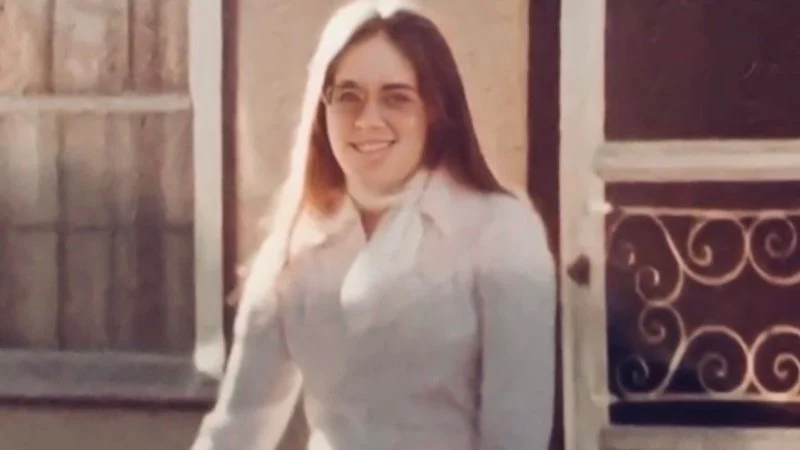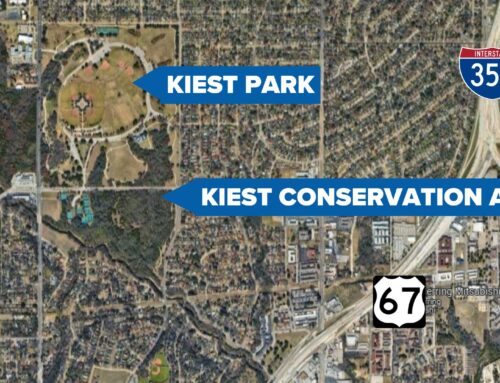On Tuesday morning, Dallas police announced they were continuing to investigate the 1985 murder of Catherine “Catrina” Mowrey.
Mowrey was found deceased, naked and wrapped in a sheet with a belt around her throat in the back of a car in the 200 block of S. Lancaster Avenue nearly 40 years ago.
But according to Mowrey’s niece, Catrina Marshall, Dallas police initially failed to investigate the death as a murder despite the gruesome circumstances.
Marshall said her family was told by police that Mowrey’s death was a suicide. An article from The Dallas Morning News shows that Dallas police told the media the death was an overdose.
“We speculate that she died on somebody and they just got scared and put her in the trunk,” Dallas homicide Sgt. H.M. Rice told the Morning News in 1985. “It’s not going to be (classified as) a murder because we don’t know who put her in there.”
Over the years, murder and undetermined cause of death have also been listed on official documents. In all, Marshall’s family has been given four causes of death from various sources, only creating more questions for them.
“There is no excuse,” Marshall, who lives in Kansas, said of the way her maternal Aunt’s death has been handled.
A family lead investigation
Marshall, who was named in honor of her aunt, was not alive at the time of her death. As an adult, she has become dedicated to finding answers for her family and demanding “accountability” from police who she said failed to adequately investigate her aunt’s death.
Catrina Mowrey was 24-years-old at the time of her death, and she had been living in Dallas for several years. Marshall said Mowrey lived in an apartment near Irving, but had several associates who lived in the Oak Cliff area.
Originally from Kansas, Mowrey had become involved with the drug scene in Dallas, Marshall said.
Marshall’s family has theorized that the stigma around drug use may have been part of the reason Dallas police did not give their loved ones’ case the attention it deserved.
“(My Uncle) said that at that point in time in the 80s, Dallas was really big in the media for having a lot of drug activity,” Marshall said. “It seems like they just didn’t want any more eyes on them in that negative light so they were covering stuff up or sweeping it under the rug.”
In the years after Mowrey’s death, Marshall said her mother was under the impression that police were still working on the case. In September 2020, Marshall requested Mowrey’s death certificate from the Texas Department of State Health Services.
“I wanted something in writing, some sort of documentation in black and white that I could see for myself,” Marshall said.
At this point, Marshall’s family had been told that Mowrey’s death was a suicide, and they’d read it was an overdose. But when Marshall got the death certificate back, the cause was listed as “undetermined.”
A year later, in 2022, Marshall ordered a copy of Mowrey’s toxicology report and found that no drugs were present in her system at the time of her death, despite media reports that the young woman had died of a cocaine overdose.
“(There was) a lot of shock, a lot of anger. I was kind of pissed off,” Marshall said.
Marshall said the more she learned about the case, the more confused she became.
Things that Marshall clearly saw as evidence seemed to have been ignored. For example, Mowrey was legally blind but her glasses were found in her home apartment, meaning she could not have driven herself across town to Oak Cliff where her body was found.
While Marshall became more and more determined to seek justice for her aunt, she said Dallas police were slow to respond, and sometimes didn’t respond at all.
Marshall created a petition urging police to reopen the investigation into her aunt’s death, and spoke with various online blogs that document cold cases in attempt to grow attention for the case.
But Marshall should not have had to resort to investigating the case herself, she said.
“I had no intention of broadcasting to the media until (the police) left me with no choice,” Marshall said. “It was maddening, infuriating.”
A domino effect
Mowrey’s death was the first of what Marshall calls a “domino effect” of tragedies for her family.
In 1993, Catrina Mowrey’s sister Joann was murdered in Southeast Dallas.
Marshall said Joann’s throat was slit with a broken beer bottle at the Linfield Motel, only five miles away from where her sister’s body had been found eight years before.
Articles published at the time of Joann’s death show that she was pronounced dead at the scene, and Marshall said a man was prosecuted for the murder.
Marshall said her mother suffered from PTSD and mental disabilities following the deaths of her sisters.
One month after receiving the paperwork that listed Catrina Mowrey’s cause of death as undetermined, Marshall’s mother committed suicide. Marshall believes that her mother’s death was directly impacted by the information that police had not definitively investigated her sister’s murder.
While Marshall has urged for police to reopen Mowrey’s case, it is bittersweet knowing that her mother will not be able to see any justice that may come from it.
“It would be ideal to get justice or closure, but I don’t at this point think it would do all that much,” Marshall said.
Marshall said over the years her family has developed theories as to who they believe is responsible for Mowrey’s death, but she will not publicize those theories out of concern for her safety.
Dallas police are urging anyone with information about the case to contact Sgt. Girdler at 214-671-3661 or at coldcase@dallaspolice.gov.






